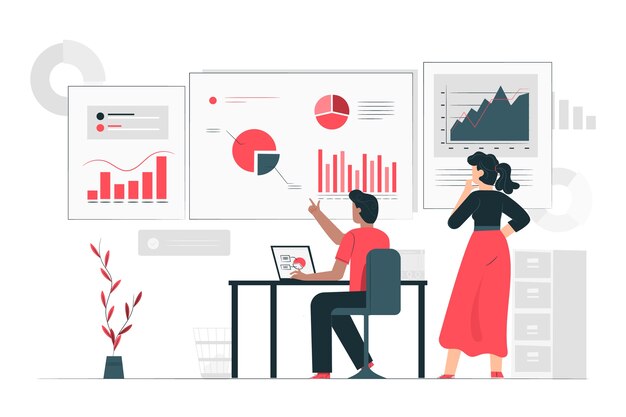How Agentic AI is Shaping the Future of SaaS Innovation

Strong 8k brings an ultra-HD IPTV experience to your living room and your pocket.
Agentic AI, a groundbreaking advancement in artificial intelligence, introduces autonomous agents capable of independent decision-making and action. In the fast-paced world of Software as a Service (SaaS), innovation is critical to maintaining competitive advantage. As customer expectations grow and the demand for smart automation increases, Agentic AI is emerging as a game-changer in SaaS innovation—reshaping how software is built, operated, and experienced.
With the rapid growth of cloud-based applications, companies are now turning to AI not just for automation, but for intelligence that can act, adapt, and learn. Agentic AI offers a level of proactivity and autonomy that can completely redefine how SaaS products are conceived and consumed.
What is Agentic AI?
Agentic AI refers to artificial intelligence systems that operate as intelligent agents, capable of setting goals, reasoning about complex tasks, and autonomously executing actions to achieve outcomes. Unlike traditional AI models, which require explicit commands, Agentic AI acts proactively. These agents can learn, adapt, and collaborate with humans or other systems in real time, offering higher levels of intelligence and autonomy.
These agents are designed with three core capabilities:
- Goal-Oriented Behavior: They set and pursue objectives based on inputs or environmental triggers.
- Contextual Understanding: They process vast amounts of data to make decisions aligned with business context.
- Autonomous Execution: They perform tasks independently, reducing the need for human intervention.
Why SaaS Needs Agentic AI
SaaS platforms are under pressure to offer faster, smarter, and more intuitive services. Traditional rule-based automation often falls short when dealing with dynamic user needs or complex processes. Agentic AI addresses these limitations by introducing systems that continuously adapt and optimize. It empowers SaaS businesses to evolve from reactive platforms to proactive service providers, capable of predicting needs and delivering real-time value.
Moreover, the SaaS market is becoming saturated, and differentiation now hinges on advanced intelligence and usability. Agentic AI enables:
- Faster response times
- Deep personalization
- Real-time analytics and system learning
- Cost-effective operations with minimal human oversight
Key Benefits of Agentic AI in SaaS
1. Hyper-Automation of Workflows
Agentic AI enables end-to-end automation beyond simple scripts. From onboarding to customer support, it can coordinate multiple systems, make contextual decisions, and adjust workflows dynamically. This results in faster time-to-market and enhanced operational efficiency.
2. Personalized User Experiences
By analyzing behavior and preferences, AI agents deliver hyper-personalized interfaces, recommendations, and feature suggestions that evolve with user needs. This leads to increased customer satisfaction and higher retention rates.
3. Intelligent Customer Support
AI Agents and AI Voice Agents can handle complex customer queries, resolve issues, and even escalate problems only when necessary, improving resolution speed and customer satisfaction. They can also proactively reach out to users when anomalies or inefficiencies are detected.
4. Proactive System Optimization
These intelligent agents can monitor SaaS performance in real time, detect anomalies, and automatically apply fixes, creating self-healing platforms that require minimal human intervention. This leads to reduced downtime and better resource allocation.
5. Predictive Insights and Data Utilization
Agentic AI transforms raw data into actionable intelligence by identifying trends, forecasting user behavior, and recommending strategies—all autonomously. This helps in better decision-making, product planning, and customer targeting.
6. Enhanced Collaboration
Some Agentic AI models facilitate collaboration between multiple agents or between agents and human teams. They can coordinate across departments, trigger task assignments, and maintain alignment with strategic goals.
Real-World Use Cases
- Customer Success Platforms: AI agents guide users through onboarding, helping them achieve early success and reduce churn. They can also assess user engagement and suggest next steps or features to explore.
- CRM Systems: Automate lead scoring, follow-ups, and personalization in real-time, driving better sales performance. These agents can also identify opportunities to cross-sell or upsell products based on client behavior and buying patterns.
- Analytics Tools: Act not just as data visualizers but as strategic advisors offering actions based on trends. Agents can even simulate business scenarios or recommend operational pivots.
- DevOps SaaS: Use AI agents to manage deployment pipelines, identify bugs, and auto-patch without downtime. They can also scale resources dynamically based on traffic prediction or performance insights.
- Marketing Automation: AI agents can autonomously run A/B tests, adjust campaigns based on performance, allocate budgets, and predict the most effective times or channels to engage audiences.
Impact on SaaS Product Development
Agentic AI accelerates product development by handling repetitive tasks like testing and data analysis. It enables:
- Generative design of features based on user needs
- Real-time user feedback loops via embedded AI agents
- Continuous integration and delivery supported by agent-led automation
- Reduction of bugs through autonomous code review and optimization
In addition, agentic AI can assist in UI/UX improvements by tracking real-time interactions, recognizing user friction points, and suggesting layout or workflow changes. It also allows developers to test new modules through synthetic users created by AI agents to simulate edge cases and stress test the system before release.
Challenges and Considerations
- Data Privacy and Security: Autonomous AI systems must comply with strict regulations such as GDPR, HIPAA, or SOC 2. Ensuring that agents handle sensitive data ethically and lawfully is a top priority.
- Governance: Defining boundaries for agent autonomy is crucial to prevent unintended consequences or rogue behaviors. Companies must implement monitoring tools and override mechanisms.
- Legacy System Integration: Older SaaS platforms may face hurdles in embedding intelligent agents without significant architecture changes. Refactoring code or building middleware may be required.
- Explainability: Ensuring that AI decisions are transparent and understandable remains a challenge. This is especially important in regulated industries or in customer-facing applications where trust is essential.
- Cost and Complexity: Implementing agentic AI can be resource-intensive and may require specialized talent, robust infrastructure, and careful change management strategies.
Future Trends and Predictions
- Rise of Autonomous SaaS Platforms where human input is optional and AI handles most operations, such as onboarding, configuration, monitoring, and support.
- Convergence with IoT, Blockchain, and Edge AI for more decentralized and intelligent SaaS ecosystems. For example, agents embedded in IoT networks could automatically trigger SaaS workflows.
- Emergence of Agent Marketplaces, allowing companies to deploy or subscribe to ready-made AI agents. These marketplaces could feature niche agents for specific tasks like compliance monitoring or content moderation.
- Development of Self-Evolving SaaS Products that adjust features, interfaces, and business logic based on usage patterns. These platforms could also initiate their own updates or recommend strategic pivots.
- Growth of Multi-Agent Systems (MAS), where numerous agents collaborate to manage complex business operations, supply chains, or multi-tenant cloud environments.
How SaaS Companies Can Prepare
- Invest in AI Agent Development: Build or collaborate with AI development firms to design intelligent agents tailored to your domain. This includes defining use cases, datasets, and expected behaviors.
- Modernize Infrastructure: Ensure your platform is scalable, modular, and API-friendly for seamless agent integration. Consider microservices and containerized architecture to enable flexibility.
- Adopt AI-First Culture: Train teams, restructure operations, and align leadership with an AI-centric vision. Encourage experimentation and cross-functional collaboration.
- Evaluate and Experiment: Start with pilot programs and gradually scale based on performance metrics. Use A/B testing, sandbox environments, and user feedback to fine-tune agent behavior.
- Implement Governance Frameworks: Establish ethical guidelines, compliance checks, and monitoring protocols to ensure responsible agentic AI deployment.
- Partner Strategically: Collaborate with AI research institutions, startups, or platforms that specialize in agent-based systems to stay ahead of the innovation curve.
Conclusion
Agentic AI represents a paradigm shift in SaaS innovation. It’s not just enhancing existing systems—it’s creating a new blueprint for how software should think, act, and evolve. SaaS companies that embrace this intelligent automation early will lead the future, delivering smarter solutions and unmatched user experiences.
By leveraging Agentic AI, companies can reduce operational costs, boost customer satisfaction, and unlock new revenue streams. It’s more than a technological upgrade—it’s the foundation of the next era of software.
Note: IndiBlogHub features both user-submitted and editorial content. We do not verify third-party contributions. Read our Disclaimer and Privacy Policyfor details.







